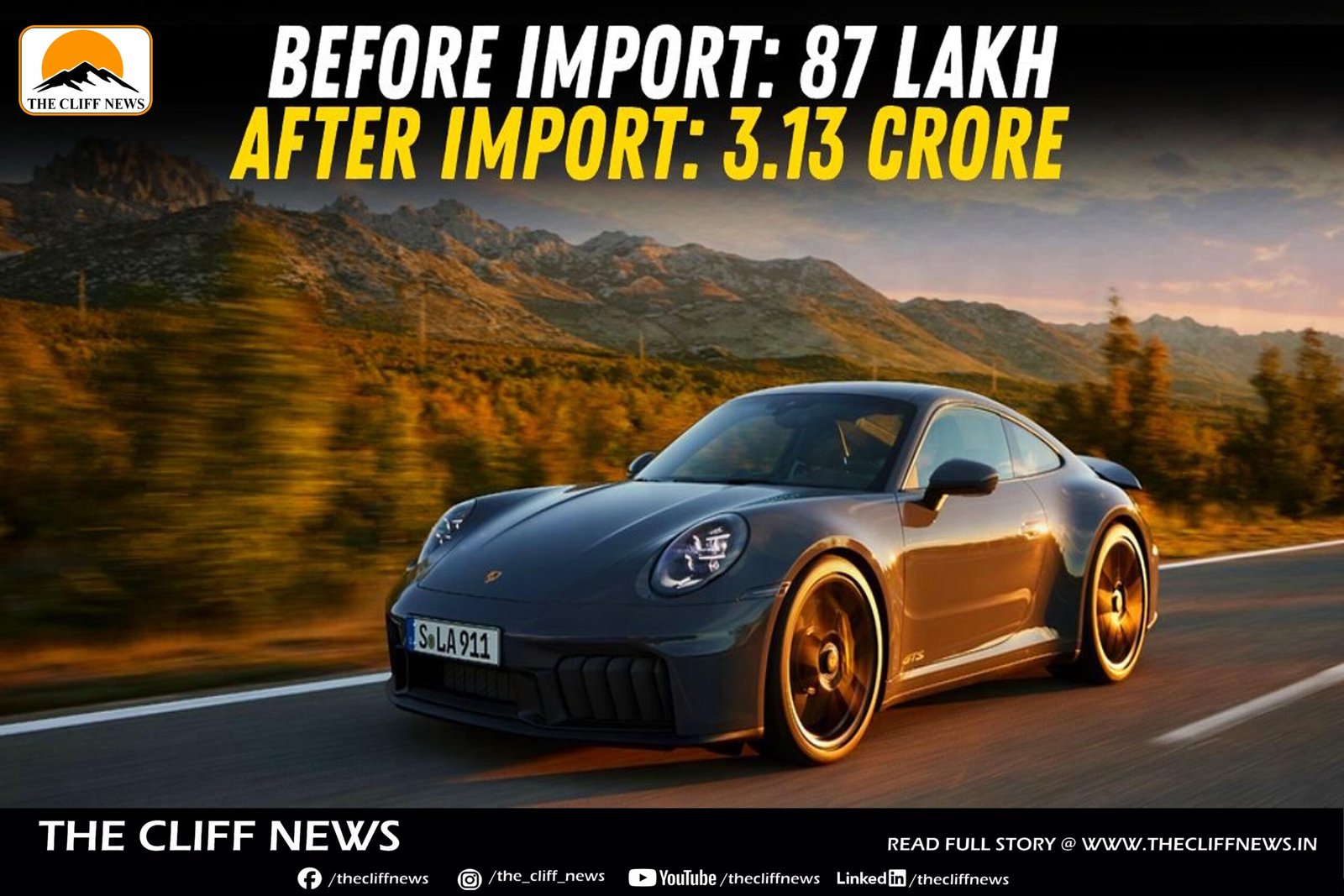A Porsche worth ₹87 lakh turning into a ₹3.13 crore expense isn’t just about extravagant taste—it’s a stark illustration of the weight of India’s complex and punitive tax system. In a widely shared LinkedIn post, financial analyst Sujay U dissected how India’s layered taxation transforms imported high-end vehicles into financial burdens, calling it “a system that taxes your dreams until they bleed.”
According to Sujay, the moment such a car enters Indian soil, the base price explodes under the weight of a 125% basic customs duty, 30% countervailing duty, 4% additional CVD, national calamity duty, various cesses, and a 15% state road tax. In effect, the car becomes nearly four times its original price.
“All in, your ₹87 lakh Porsche is now a ₹3.13 crore liability,” Sujay wrote, adding that the issue isn’t luxury—it’s what citizens get in return. “We pay world-record taxes on cars, yet drive them on pathetic, dusty, pothole-filled roads,” he lamented. “It’s not about a Porsche. It could be your dream bike, an EV, or a humble family car.”
Sujay’s sharp critique highlights how this burden isn’t confined to imports. Even domestically manufactured vehicles are subject to a 28% Goods and Services Tax (GST), plus additional cesses depending on engine size and fuel type. The rationale often given is protectionism—to support local industries—but Sujay questions what protection is offered to the everyday taxpayer.
His argument resonates widely, especially among aspirational Indians who find their mobility dreams punished by high costs, yet unsupported by modern infrastructure. “We’re tired of watching our hard-earned money vanish into broken roads, crumbling infrastructure, and silent policymakers,” he wrote.
In a country striving to present itself as a global economic powerhouse, Sujay’s viral post serves as a sobering reminder: aspiration alone isn’t enough—systems must evolve to support it, not stifle it.



